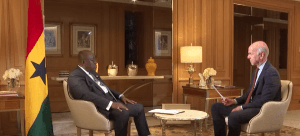- Abaare Reports
- Addi Kujay
- AfricaCNNnews
- Afriyie Kwaku Boachie
- AHAFO
- Alby News Ghana
- ASHANTI
- BONO EAST
- BRONG AHAFO
- Canard Afriq
- Cash In Trash
- CENTRAL
- Cherries
- Club Mate
- Courageous World
- Crest City News
- Current Affairs
- Daily Biz
- DailySpot
- Daniel Kaku
- Da Spicy News
- DC KWAME KWAKYE
- EASTERN
- EBI
- Facts Check
- Gabs Feed
- Ghana News Timeline
- Ghana News Update
- Godblessed1
- GREATER ACCRA
- Great Okocha
- Harry Graphic
- iNews
- Info News Ghana
- King B
- Kofipedia
- Lovely
- Managing GH
- Man Zekay
- Mart News Empire
- Maxkaytheblogger
- Mohammed Zakwan
- MyDailyNews
- Nana Kay News
- News Hub GH
- News Today
- News Zone 360
- Nine 9
- NORTH EAST
- NORTHERN
- ObuabaMedia
- OTI
- Priests News
- Royalnews360
- Sahara Writers
- SAVANNAH
- Simpsons Blog
- Skate News
- Smart News Ghana
- SpinnerWeb
- Teddytheblogger
- Ted News Ghana
- The news
- TheoNews
- Trending Now
- UPPER EAST
- UPPER WEST
- VOLTA
- Wadupgh
- Web Brief
- WESTERN
- WESTERN NORTH
Nana Kay News Blog of Monday, 29 May 2023
Source: Island Reporters
Sanitary pads should be tax-free; not menstrual luxury – Rosetta Ntriwaah Boakye

The National Association of Registered Midwives of Ghana's Rosetta Ntriwaah Boakye has urged the government to eliminate the "luxury tax" on sanitary pads so that they are more accessible for women and young girls.
The midwife at the Lekma Polyclinic in Accra, Ghana, who also serves as an advocate for maternity and child health, a health influencer, and a medical media celebrity, claims that the high import duty on sanitary pads restricts their usage to the rich.
Ntriwaah Boakye characterized the government's desire to profit from the importation of sanitary napkins, which causes the costs to rise, as unfair and immoral.
"How can we nurture our nation when the fundamental component of womanhood—menstruation—has become a burden to our women in these times due to poor menstrual hygiene related yo high cost of sanitary pads,” she quizzed.
“Menstruation is a biological necessity; therefore, menstrual products are essential to female health and wellbeing. To consider sanitary pad a ‘luxury goods’ is not only unjust but also unethical. Somewhere in Africa (Ghana), menstrual products are classified as ‘luxury’ and are subject to 20% import tax whilst countries like Nigeria, Namibia, Malawi, Rwanda, South Africa etc have duty/tax exemption on sanitary pads.”
She bemoaned how the high cost of sanitary pads make it difficult for rural young girls to keep menstrual hygiene, a situation which pushes them into dangerous sexual activities with men.
“Promoting and encouraging menstrual hygiene among adolescent girls in deprived communities has become very challenging due to economic constraints. The consequences of this have made some adolescent girls vulnerable to menstrual complications whilst others have become victims of transactional sex and teenage pregnancy in their quest to raise money to afford sanitary pad.”
Ntriwaah Boakye emphasized that women grow with social stigma surrounding menstruation, which is enough burden, so the high cost of sanitary pads further worsens their plight.
She made reference to a UNICEF data which says 1.8 billion people menstruate globally every month and sanitary pad, which is the one commonest menstrual product used during this phase of natural reproductive occurrence should only be for menstrual hygiene and not menstrual luxury.
Business










